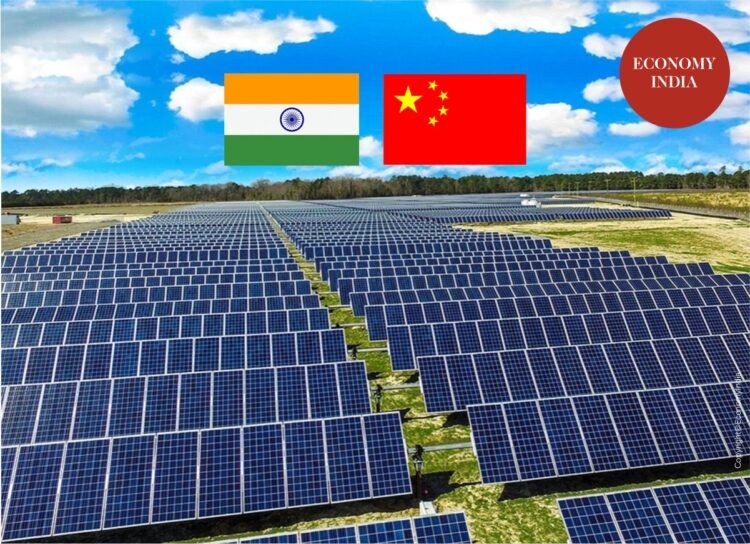India’s New Import Restrictions to Affect Chinese Solar Panel Exports Starting April 1
NEW DELHI (Economy India): India is set to impose stricter import regulations on solar panels starting April 1, 2024. This move aims to reduce the country’s heavy reliance on Chinese imports and boost domestic manufacturing. The new regulations are expected to deal a significant blow to China’s solar industry, which is a major exporter to India.
Tightened Import Restrictions
The Indian government has revised its approved list of solar panel manufacturers and models. Under the new policy, only domestically manufactured solar panels that are on the revised Approved List of Module Manufacturers (ALMM) will be eligible for use in subsidized or sponsored solar projects. This measure is part of India’s broader strategy to become self-reliant in solar energy.
Impact on Chinese Manufacturers
The new policy is set to affect China, the world’s largest solar panel manufacturer, which has been a top supplier to the Indian market. The revised ALMM list excludes foreign manufacturers, which means that solar panels from Chinese companies will not be used in Indian projects starting April 1.
Domestic Companies to Benefit
Indian companies like Adani Green Energy, Tata Power, Insolation Energy, and Bharat Heavy Electricals are expected to benefit from the new regulations. These companies and their subsidiaries are included in the revised ALMM list, positioning them to take advantage of the shift towards domestic sourcing.
Expected Decline in Imports
The new import restrictions are anticipated to lead to a decrease in the import of solar panels and wafers over the coming years. This policy shift is expected to encourage more Indian manufacturers to enter the solar market and fill the gap left by reduced imports.
Recent Trends
India’s imports of photovoltaic cells from China have constituted 82% of the total imports in recent years. However, following the imposition of these restrictions, a significant drop in this trade is anticipated. Additionally, data from the US Federal investigation indicates that Chinese companies have been exploiting loopholes to evade Indian customs duties.

India’s new import regulations represent a strategic move towards self-sufficiency in solar energy production. While these changes are likely to impact Chinese manufacturers, they also signal a growth opportunity for domestic producers and a step towards a more sustainable energy future for India.
(Economy India)


